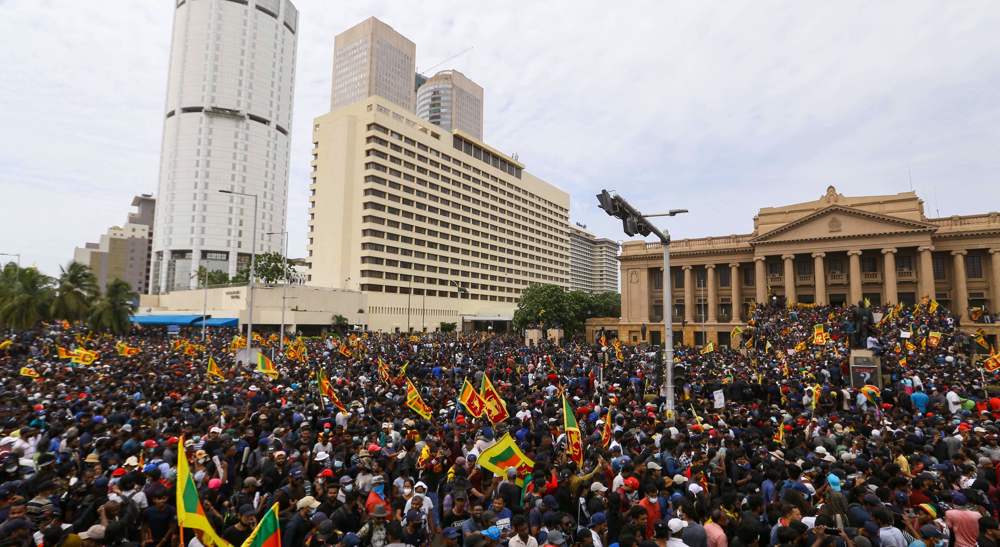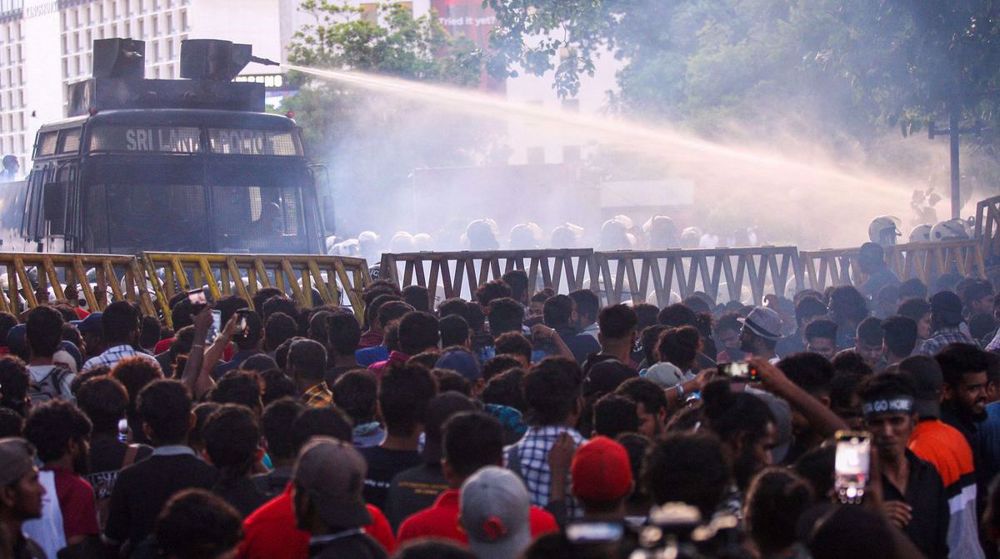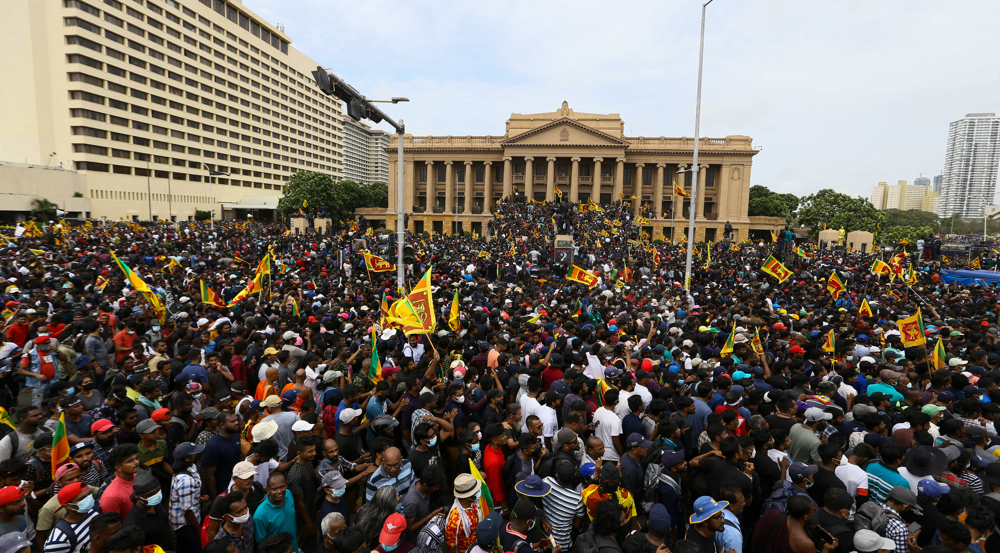Sri Lanka calm but protesters refuse to leave presidential compound
Sri Lankan protesters remain in the compound housing the official residence of President Gotabaya Rajapaksa which they stormed Saturday, saying they will stay until he officially resigns.
A tense calm returned to the streets of Sri Lanka's commercial capital Colombo on Sunday, with opposition political parties planning to meet to agree on a new government.
Prime Minister Ranil Wickremesinghe said he will leave office once a new government is in place, and hours later the parliament speaker said President Gotabaya Rajapaksa will step down Wednesday.
Pressure on both men had grown as the economic meltdown set off acute shortages of essential items, leaving people struggling to obtain food, fuel and other necessities.
On Saturday, thousands of protesters stormed both officials’ homes and set fire to one of the buildings. Rajapaksa had already fled his official residence in Colombo before protesters stormed the compound.
Video and pictures showed people who had entered Sri Lanka's president's residence splashing in the garden pool, lying on beds and using their cellphone cameras to capture the moment.
Some made tea or used the gym while others issued statements from a conference room demanding that the president and prime minister go.
If both president and prime minister resign, Speaker Mahinda Yapa Abeywardena will take over as temporary president, according to the constitution.
Rajapaksa had been a popular figure among Sri Lanka's powerful Sinhala Buddhist majority, who credit him with ending the country’s 26-year-long civil war in 2009.
However, as the tourism industry, the island-nation’s economic mainstay, declined due to the global COVID pandemic, and his popularity waned as well.
The island of 22 million people is struggling with its worst economic crisis since independence in 1948 amid a severe foreign exchange shortage that has limited essential imports of fuel, food and medicine.
Soaring inflation, at a record 54.6% in June and expected to hit 70% in the coming months, has heaped hardship on the population.
The country's leaders are seeking a $3 billion bailout from the US-dominated International Monetary Fund and a restructuring of some foreign debt, but its desperate bid has gone unanswered.
Discontent has worsened in recent weeks as the cash-strapped country stopped receiving fuel shipments, forcing school closures and rationing of petrol and diesel for essential services.
‘Ghost town’: 70% of Jabalia buildings destroyed by Israel
Mother’s Day: Sareh Javanmardi’s inspiring journey as Paralympic champion and mother
Russia downs over 40 Ukrainian drones as Putin vows 'destruction' on Kiev
VIDEO | Yemen: A bone in Israeli neck
D-8’s role in Iran’s economy after Cairo summit
China slams US as ‘war-addicted’ threat to global security
China ‘firmly opposes’ US military aid to Taiwan
VIDEO | Press TV's News Headlines












 This makes it easy to access the Press TV website
This makes it easy to access the Press TV website